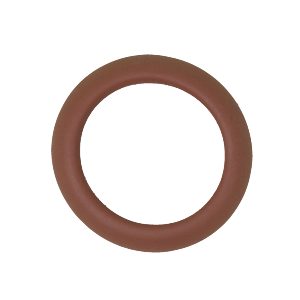How to get tested for sexually transmitted diseases
At Peech we want to break down the taboos associated with sex and sexuality, so in this series we're addressing the topic of sexually transmitted diseases. We want to emphasize that STDs don't make you disgusting or wrong or any other negative stereotype associated with STDs - they are simply infections that in most cases can be treated quickly and easily. You should also look at our posts about herpes, chlamydia, gonorrhea, genital warts and HIV, and learn a little more about sexually transmitted diseases
If you have unprotected sex, there is a risk of contracting a sexually transmitted infection such as gonorrhea or chlamydia. Many believe that they should only be tested once they have symptoms. However, if you have unprotected sex, it's always a good idea to get tested for STDs regularly, as you can have an STD without having any symptoms. You can never be tested too often! There are several different ways to test for sexually transmitted diseases, and several different options for where the test should take place. In this article, we review the testing methods for the most common sexually transmitted diseases; chlamydia, gonorrhea, herpes, genital warts and HIV. Finally, we guide you to where you can be tested, where you'll find a list of free clinics in Denmark.
The test for chlamydia
When testing for chlamydia, the method is typically a swab test. If you're a person with a vulva, you're usually tested with a swab test in the cervix and urethra if you have symptoms. Sometimes a urine sample can also be taken, but a swab test is more common. If you are a person with a penis, you either get a swab test in the urethra or have a urine sample taken. Urine testing is relatively new, so in most places you'll experience the swab test. In addition, you can also be swab tested in the rectum or the throat, if relevant.
The incubation period for chlamydia is approximately 3 weeks, which means that you can only test positive 3 weeks after you have been infected. Therefore, if you believe that there is a risk that you have been infected, it's a better idea to wait a little, instead of being tested as soon as possible after the possible time of infection. If you're tested too quickly, you risk that the chlamydia bacteria cannot be detected in the body yet, so you potentially end up with a false negative.
The test for gonorrhea
Like with a chlamydia test, you test for gonorrhea through a urine sample or a swab test. If it's relevant, you can also be swab tested in the rectum or the throat, as you can also have gonorrhea here. People with a vulva are typically swab tested in both the urethra and the uterus, while people with a penis are swab tested in the urethra.
Swab testing in the urethra and the uterus may cause slight discomfort, but is not particularly painful, and fortunately only takes a few seconds.
The incubation period for gonorrhea is approximately 1 week, which means that gonorrhea can only be measured in the body a week after you have been infected.
The test for herpes
There are several different ways to detect herpes. Typically, herpes can be diagnosed based on the characteristic sores, but you can also do a swab test on the fluid from the sores to see if it's HSV-1 or HSV-2. This method is most accurate in determining herpes, and also the most widespread. If you do not have an active outbreak with blisters or sores, but still believe that there is a risk that you have been exposed to the herpes virus, you can have a blood test taken.
When doing the blood test, the doctors are testing for antibodies. Here, antibodies in the blood are an indication that you have herpes. This method can sometimes be less accurate, as it takes time for the body to build up enough antibodies to be detected in a blood test. This method is therefore also less widespread, as there is a high risk of a false positive, which can have negative psychological consequences for the person being tested.
There's nothing wrong with having herpes, 2/3 of the adult population has HSV-1 and most don't even experience real discomfort from having the infection - yet there's a huge stigma associated with herpes, which makes many react strongly when presented with a positive diagnosis. Remember, remember, remember, it's only an infection and it doesn't define you - you do that yourself.
The test for genital warts
Genital warts are typically diagnosed by their characteristic appearance. Genital warts appear as visible warts on the genitals, and are easily recognizable by a doctor. If there is any doubt, a tissue sample or a swab test can be done on the wart, but this is typically not necessary.
The test for HIV
There are two types of tests when it comes to diagnosing HIV; the antibody test and the combi-test. Both are done with a blood test. HIV can also be detected in other bodily fluids, but blood testing is far more common. The antibody test only tests for HIV antibodies, which are formed in the body approximately 8 weeks after infection. The combi-test tests for both HIV antibodies and HIV antigen, which can be detected in the blood as early as 4 weeks after a possible infection. The combi-test is therefore far more reliable, and also far more widespread in clinics and hospitals. A positive HIV test must always be confirmed, as it can be false-positive.
Where can I get tested?
At your doctor's
If you have symptoms of a sexually transmitted disease, have been contacted by someone who may have infected you or just have the slightest bit of doubt, you can always go to your own doctor for a test.
Many doctors only do a swab test in the urethra and in the uterus, which can show whether you have chlamydia or gonorrhea. If it's relevant, you can always ask to be tested in the rectum or in the throat. Typically, your doctor will not take a blood sample when testing for sexually transmitted diseases, unless they think that it's necessary, based on what you tell them in the initial conversation. If you are not offered a blood test, but still think it's necessary, you can always ask for it.
At-home testing
If you don't want to be examined by a doctor, you also have the option of ordering a free at-home test that you can safely and easily do yourself. The at-home test can determine whether you are infected with chlamydia or gonorrhea. If you suspect another sexually transmitted disease, you need to use one of the other test options.
The test is a free offer for younger people in the following municipalities:
- People up to and including 24 years of age who live in Frederiksberg Municipality and Hillerød Municipality.
- People between the ages of 15-25 who live in Gentofte Municipality and Copenhagen Municipality.
- Young people between the ages of 15-29 who live in Høje-Taastrup Municipality, Ishøj Municipality and Lolland Municipality.
The at-home test gets sent in the mail and must be sent back in the enclosed envelope, which is prepaid and therefore just needs to be handed in at a post office. You can find the test through this link.
Testing at a free clinic
If you don't qualify for a free at-home test, or if you would like to be examined by medical staff who's not your own doctor, you also have several options. There are several clinics in Denmark that offers free tests for various sexually transmitted diseases, often without an appointment:
Capital region of Denmark
Clinic for sexually transmitted diseases - Bispebjerg Hospital
The clinic is open Monday to Friday, and is open to anyone looking for examination and treatment for sexually transmitted diseases. You have the option of making an appointment or using the drop-in without an appointment during the clinic's opening hours. Read more on the clinic's website here.
Clinic for sexually transmitted diseases - Gentofte Hospital
The clinic is open Monday, Wednesday and Friday at different times, and is open to anyone who wants examination and treatment for sexually transmitted diseases. There is both the option of an appointment and drop-in without an appointment. See opening hours and contact information on the clinic's website here.
Sex & Samfunds Contraception and Counseling Clinic
The clinic offers different types of contraception, counseling and testing for all sexually transmitted diseases except mycoplasma as well as HIV, syphilis and hepatitis, as these require a blood test. Remember to make an appointment before you show up. Read more and book an appointment on the clinic's website here.
Ungdomsmodtagelsen (youth reception) Halsnæs/UNGMOD
In Ungdomsmodtagelsen you can get guidance and testing for sexually transmitted diseases done. At the same time, there are psychologists and social workers on site, who can provide support if you need to talk to someone. You can come to Ungdomsmodtagelsen if you are between 12-25 years old, and make an appointment. Read more on their website here.
Checkpoint Copenhagen and Frederiksberg
Checkpoint is the AIDS Foundation's free testing and counseling service for LGBT+ people aged 15-29. At the clinic, you can get guidance and tests for, amongst other things, HIV, syphilis, chlamydia, gonorrhea and hepatitis C. You can either make an appointment or come by during the opening hours. There is a checkpoint at Frederiksberg and in Indre By. Read more on Checkpoint's website here.
The region of Central Jutland
Clinic for skin and sexually transmitted diseases - Aarhus University Hospital
At the clinic, you can book an appointment for examination and treatment if you have symptoms. See opening hours and more information on the clinic's website here.
Ungmod 24-7 - Herning
Ungmod is an offer for young people between the ages of 12-25 in Herning Municipality, where you can, amongst other things, be tested and treated for sexually transmitted diseases or receive guidance if you need support. See more and book an appointment on their website here.
Checkpoint Aarhus
Checkpoint is the AIDS Foundation's free testing and counseling service for LGBT+ people aged 15-29. At the clinic, you can get guidance and tests for, amongst other things, HIV, syphilis, chlamydia, gonorrhea and hepatitis C. You can either make an appointment or come by during the opening hours. Read more on Checkpoint's website here.
The region of Northern Jutland
Clinic for skin and sexually transmitted diseases - Aalborg University Hospital
At the clinic, you can book an appointment for examination and treatment of sexually transmitted diseases. See opening hours and more information on the clinic's website here.
Dermatologist center NORD - Aalborg
At the clinic you can be tested and treated for sexually transmitted diseases. Please note that there may be a long waiting time if you book an appointment without symptoms. Read more on the clinic's website here.
Checkpoint Aalborg
Checkpoint is the AIDS Foundation's free testing and counseling service for LGBT+ people aged 15-29. At the clinic, you can get guidance and tests for, amongst other things, HIV, syphilis, chlamydia, gonorrhea and hepatitis C. You can either make an appointment or come by during the opening hours. Read more on Checkpoint's website here.
The region of Southern Denmark
Clinic for sexual health - Odense
The clinic is a free offer for young people under 30 in Odense who wants to be tested for sexually transmitted diseases. Book an appointment on the clinic's website here.
Clinic SOS - Odense University Hospital
The clinic offers examination and treatment of sexually transmitted diseases if you make an appointment. Get more information on the clinic's website here.
Checkpoint Odense
Checkpoint is the AIDS Foundation's free testing and counseling service for LGBT+ people aged 15-29. At the clinic, you can get guidance and tests for, amongst other things, HIV, syphilis, chlamydia, gonorrhea and hepatitis C. You can either make an appointment or come by during the opening hours. Read more on Checkpoint's website here.
The region of Zealand
Clinic for sexually transmitted diseases - Roskilde Hospital
The clinic offers examination and treatment of all sexually transmitted diseases. Remember to make an appointment before you show up. See more information on the clinic's website here.
Sources:
https://www.sexogsamfund.dk/viden/klinikker
https://aidsfondet.dk/checkpoint/adresser-og-abningstider/





